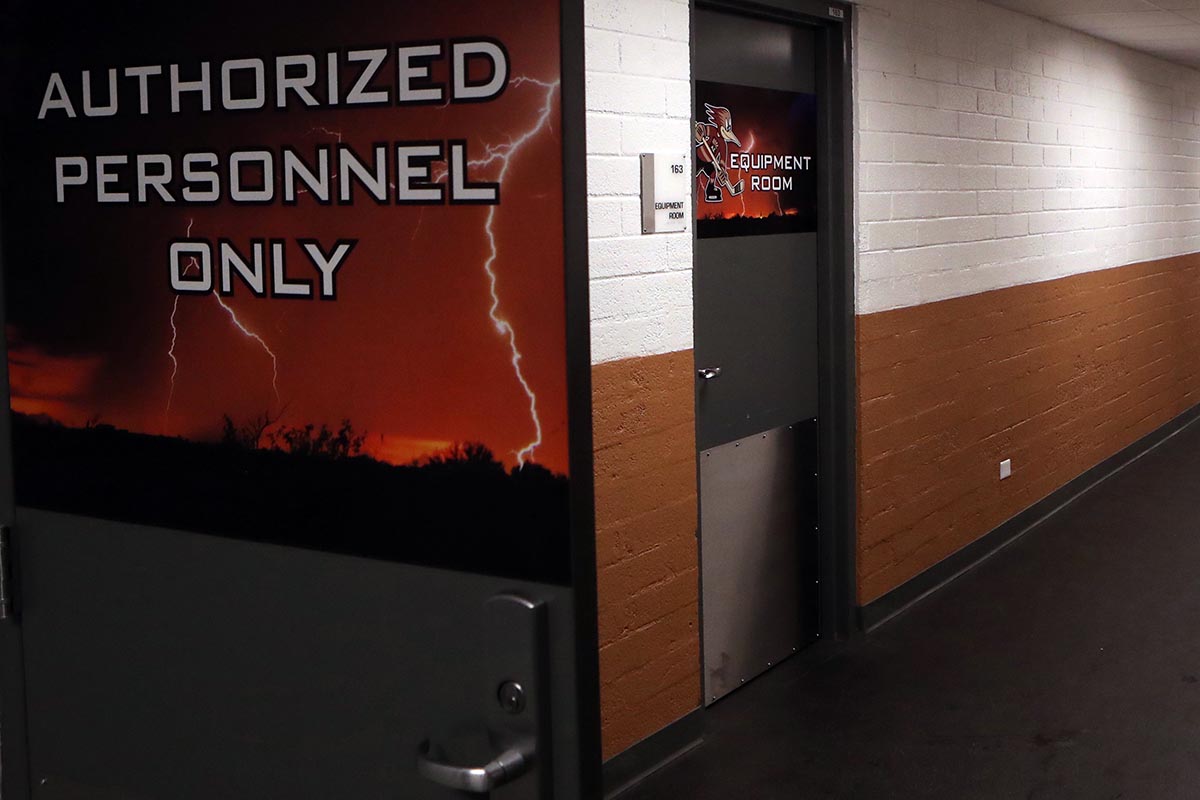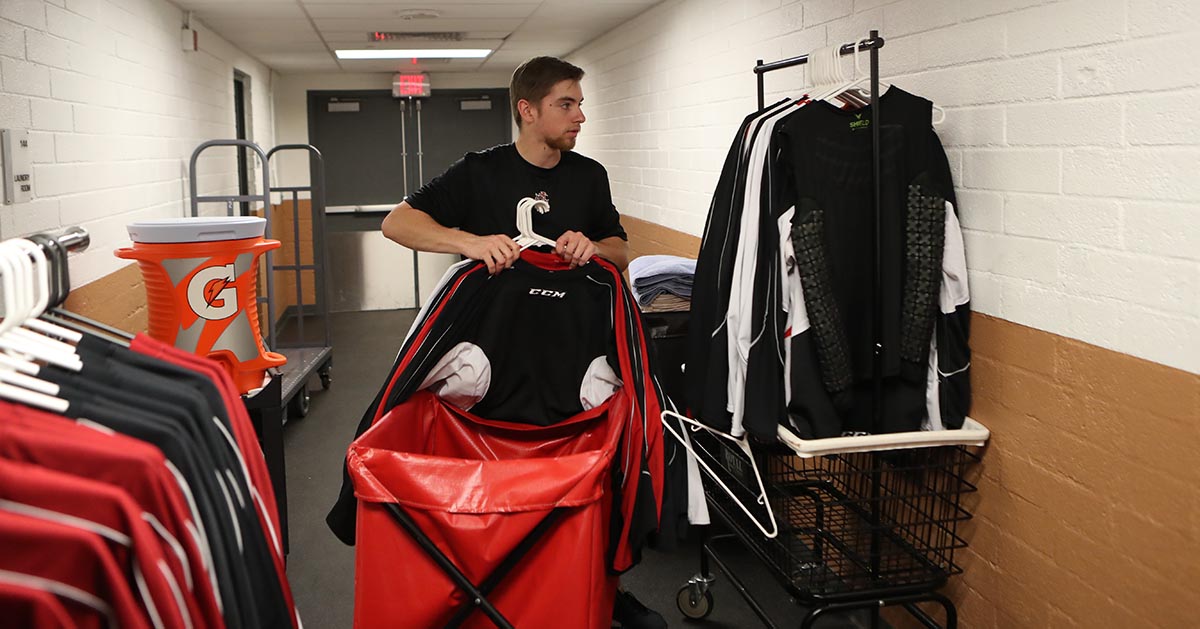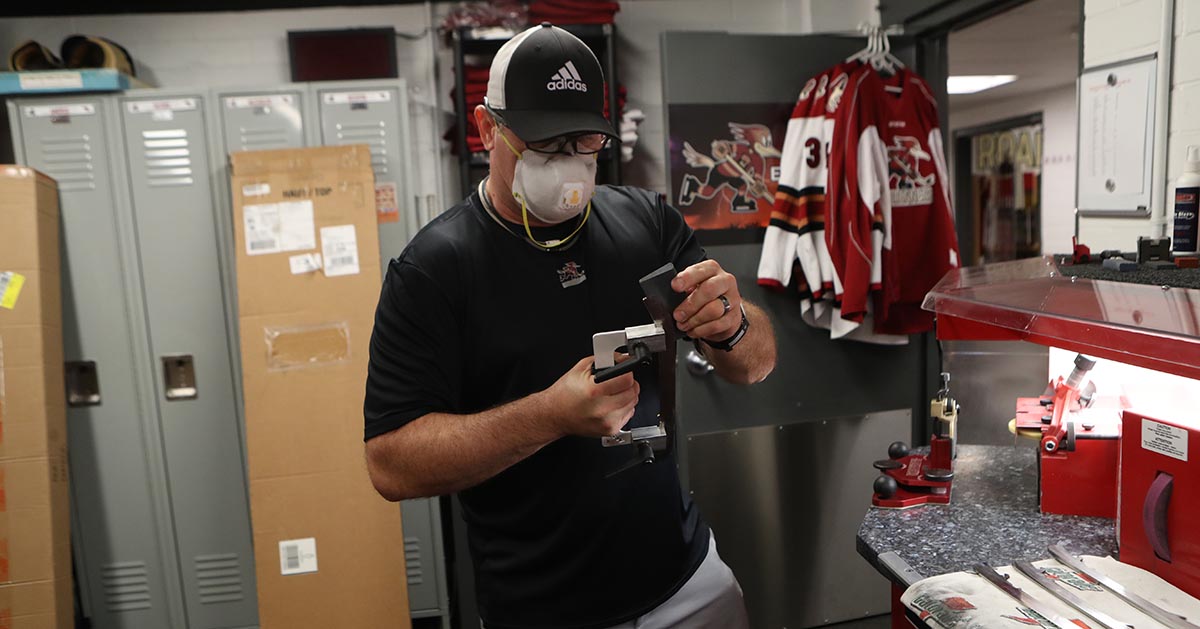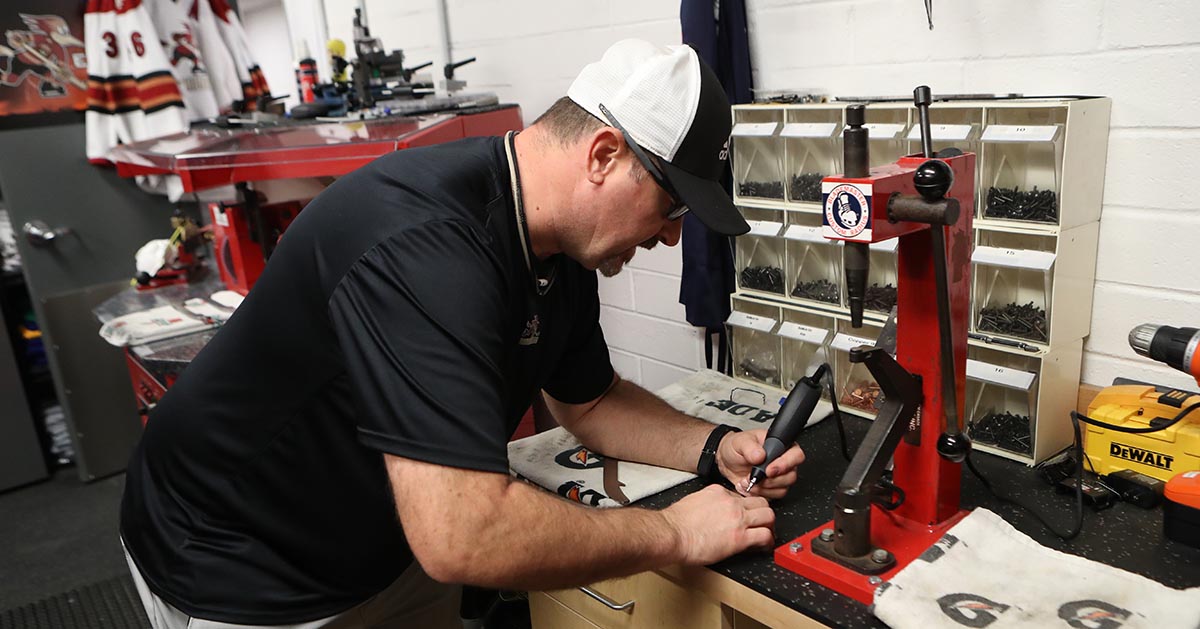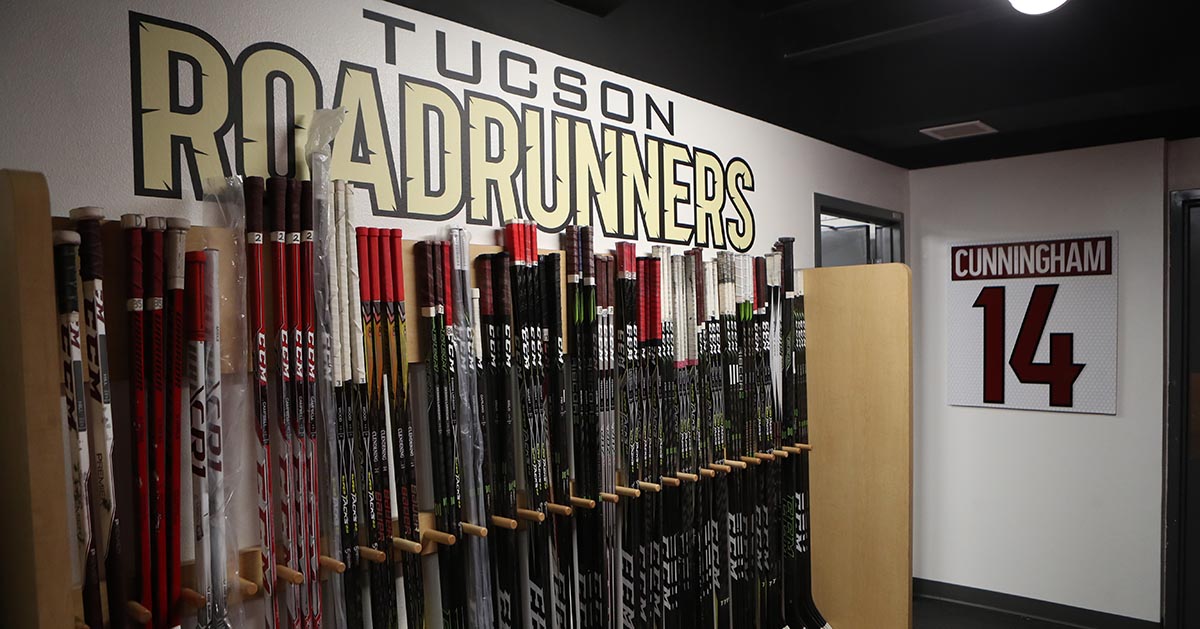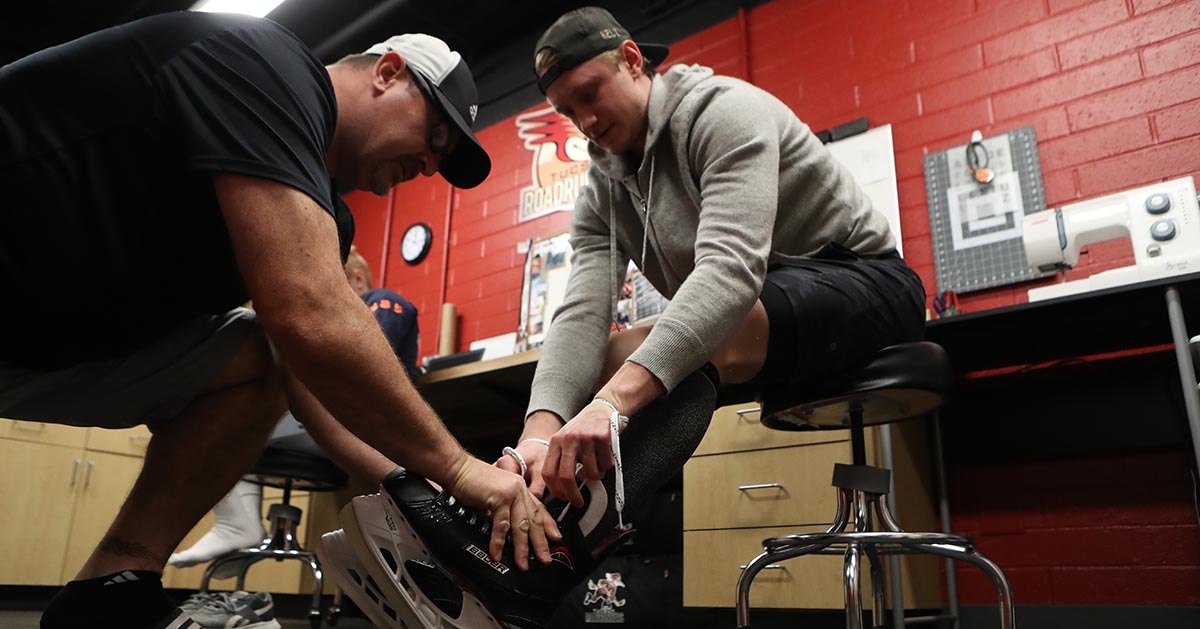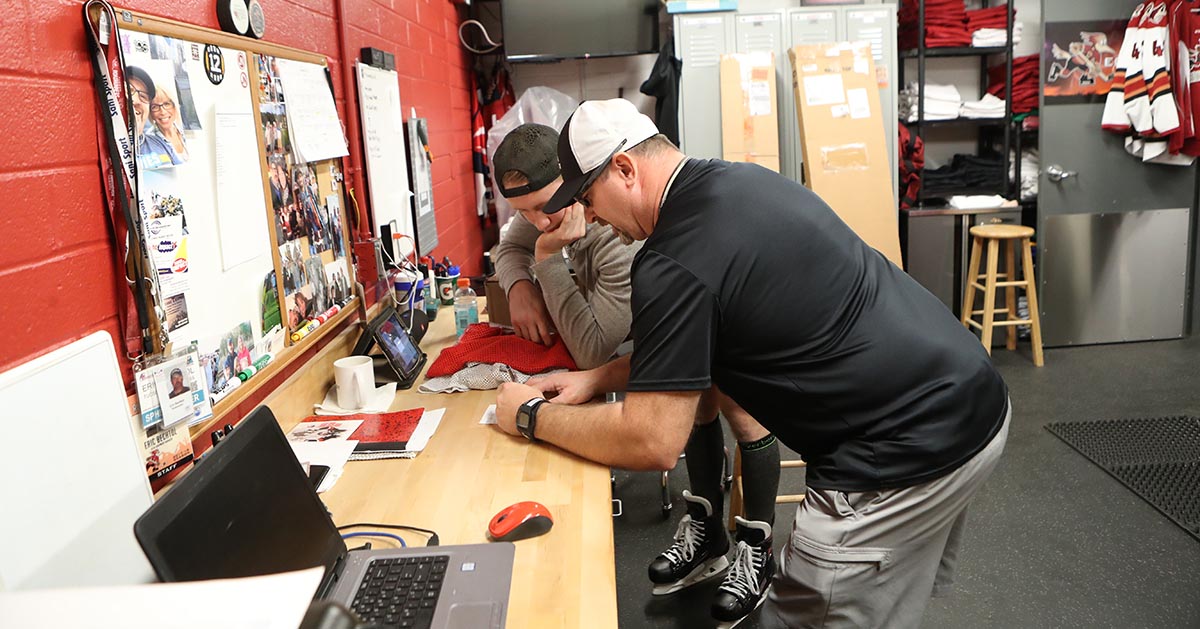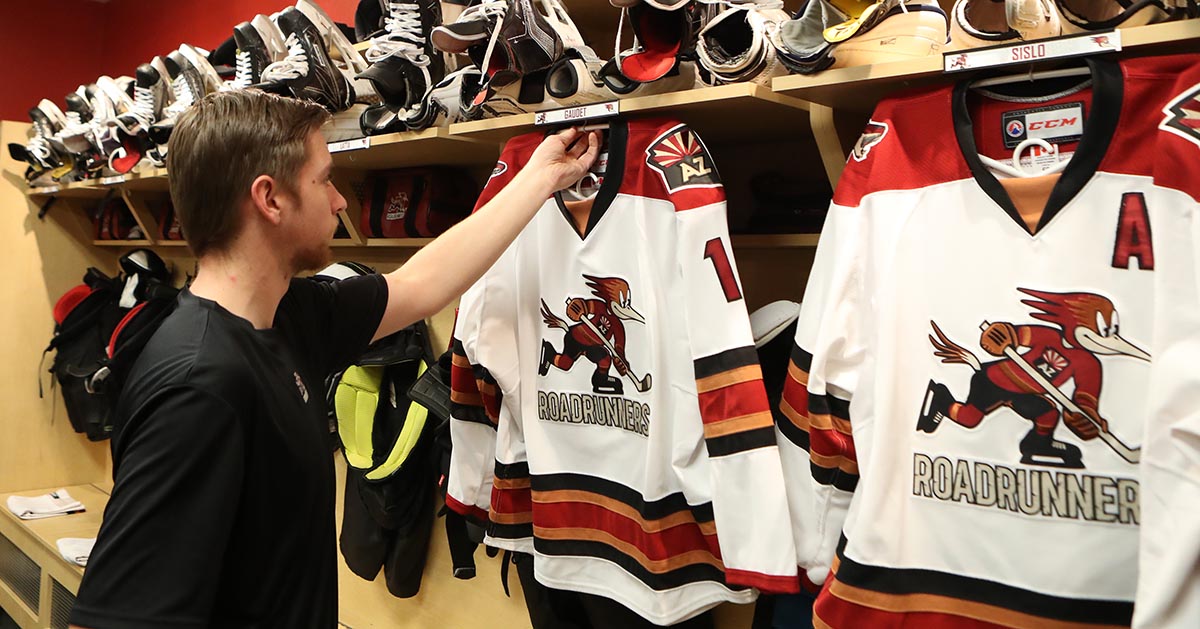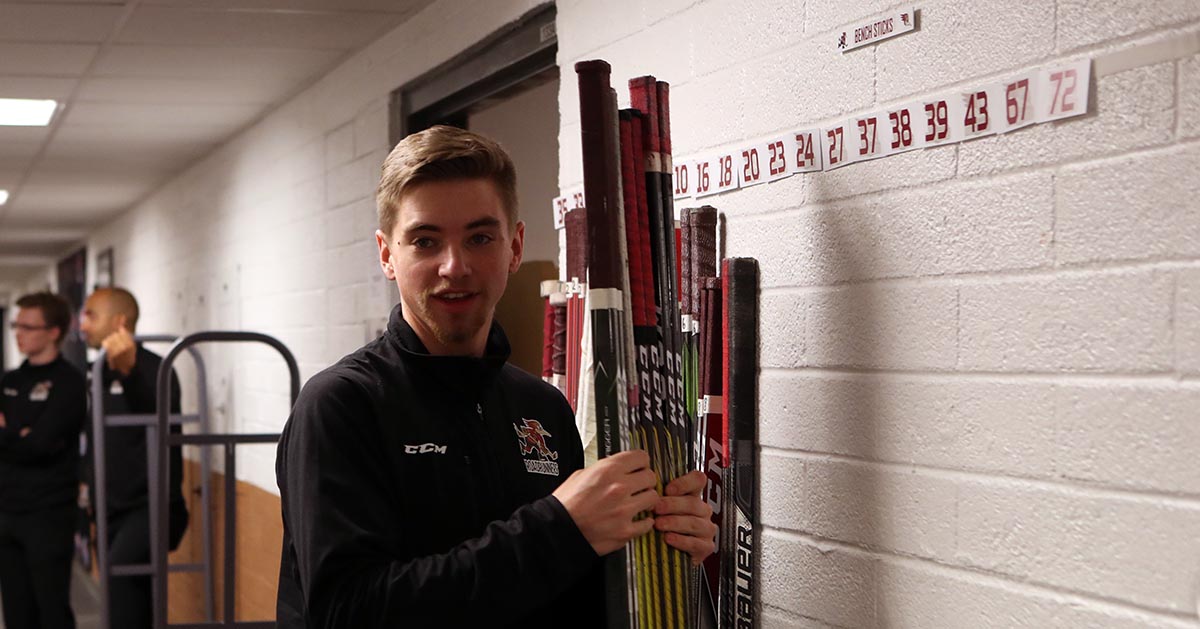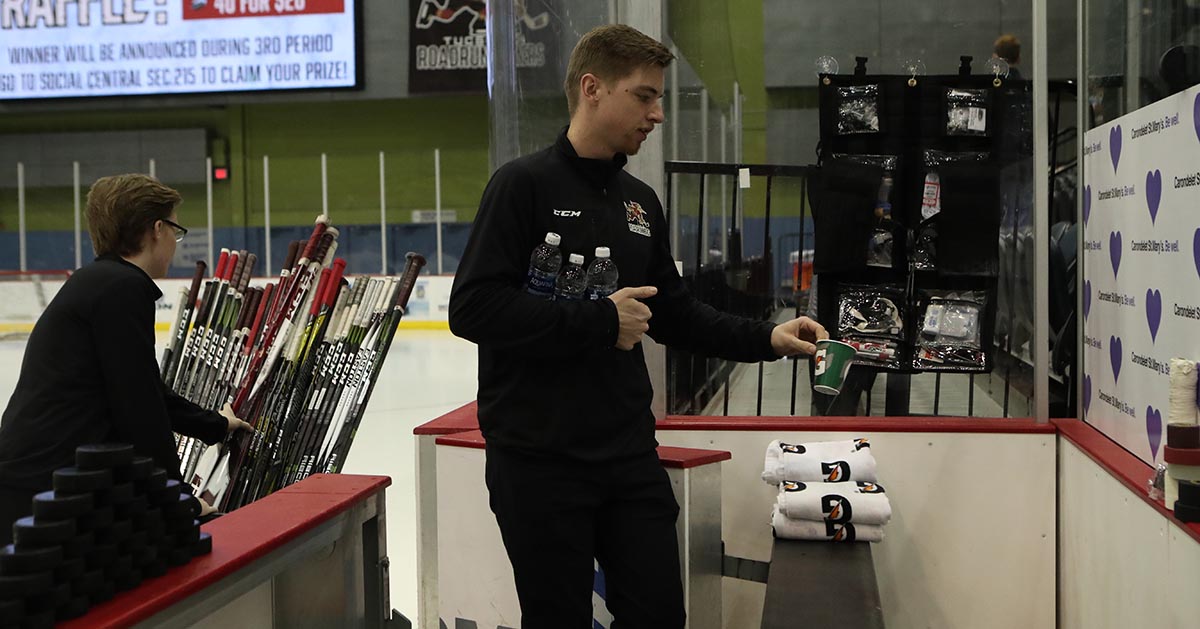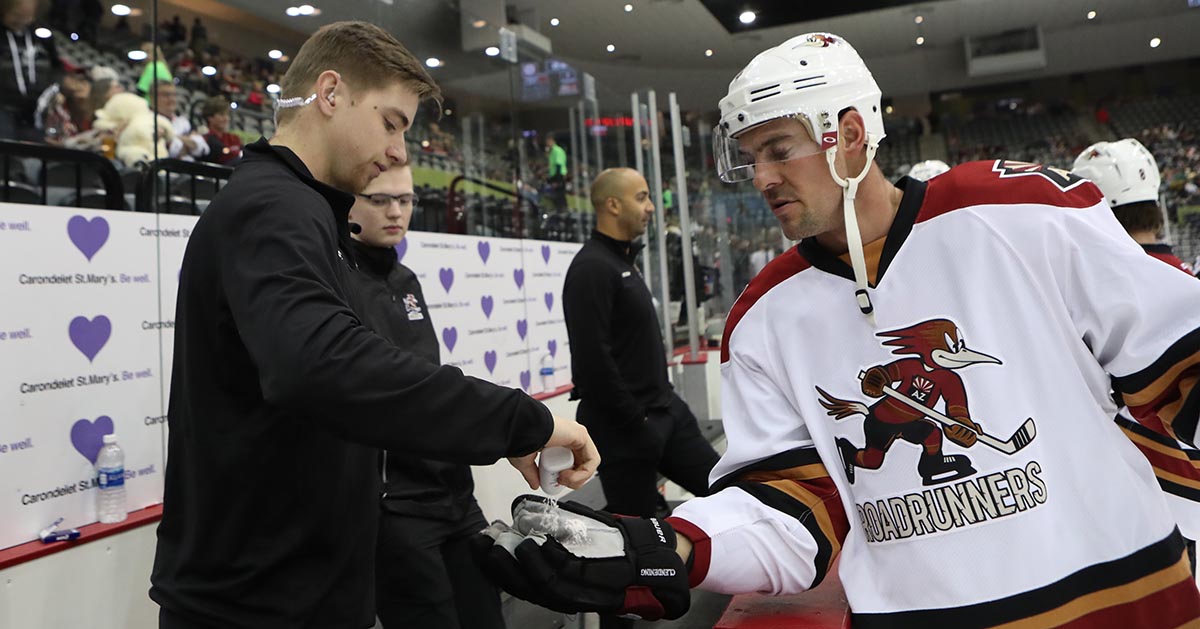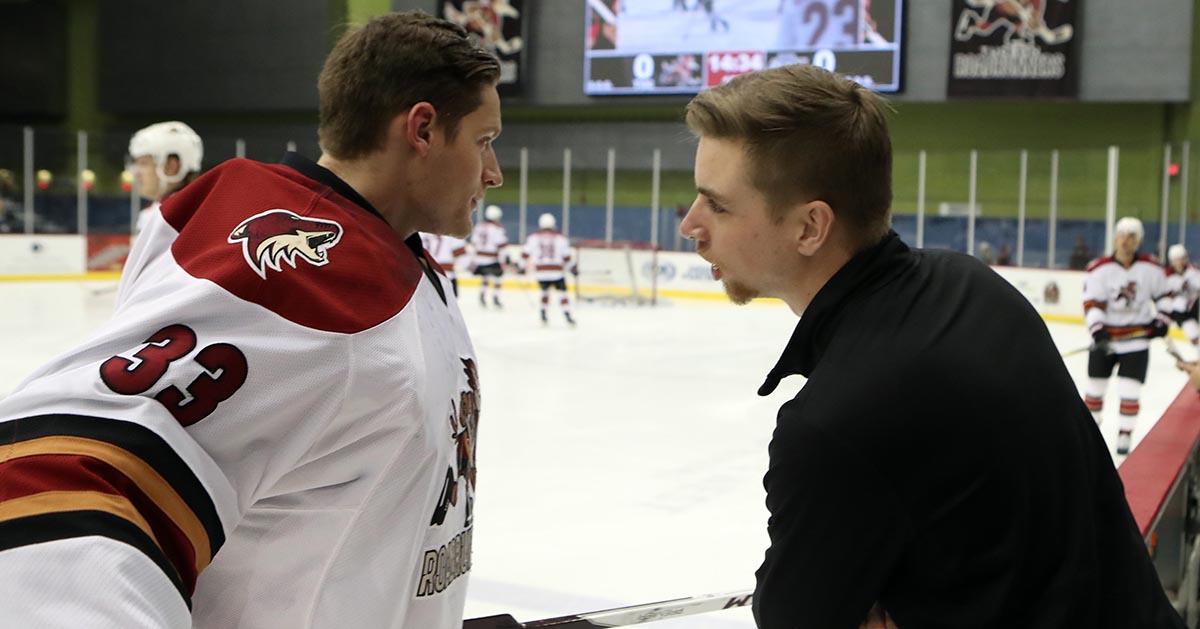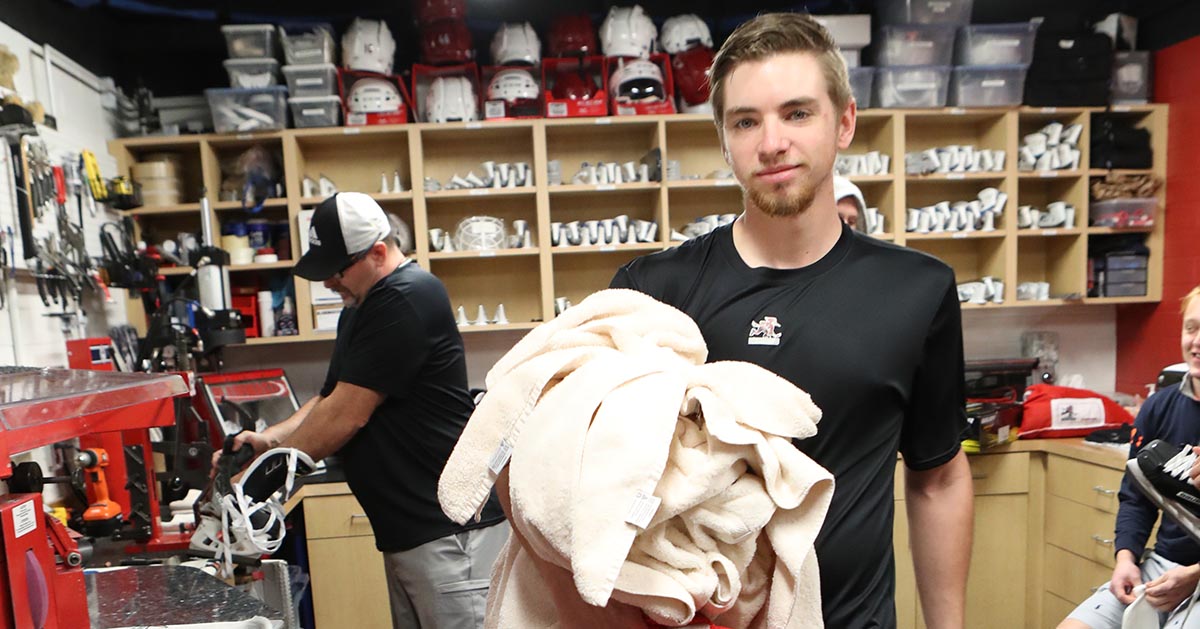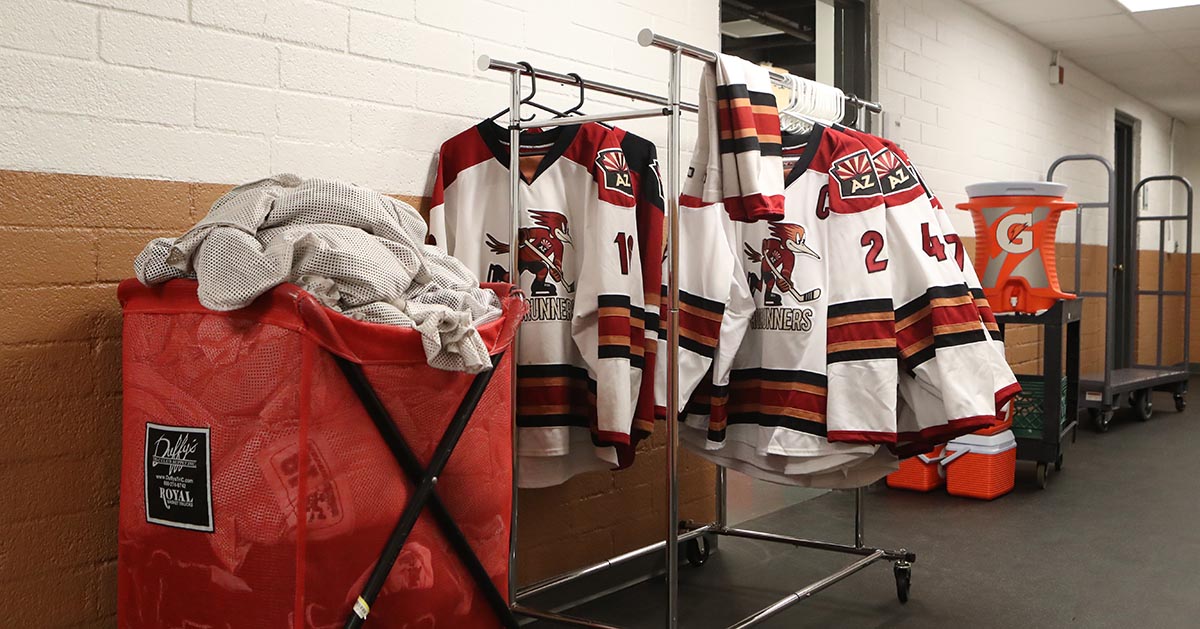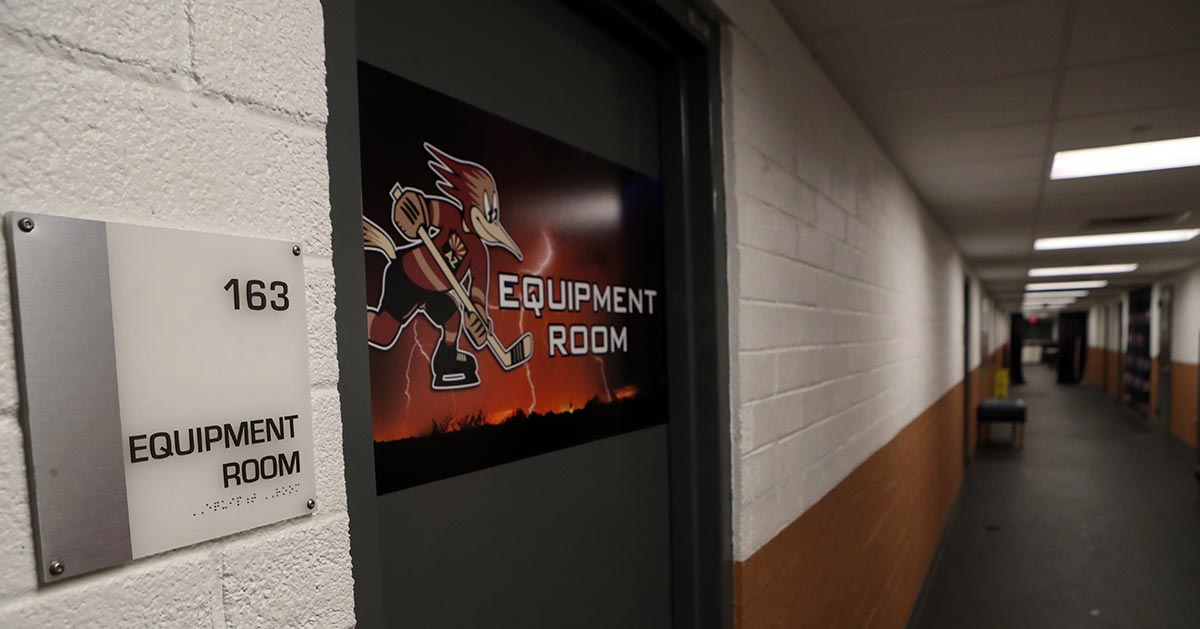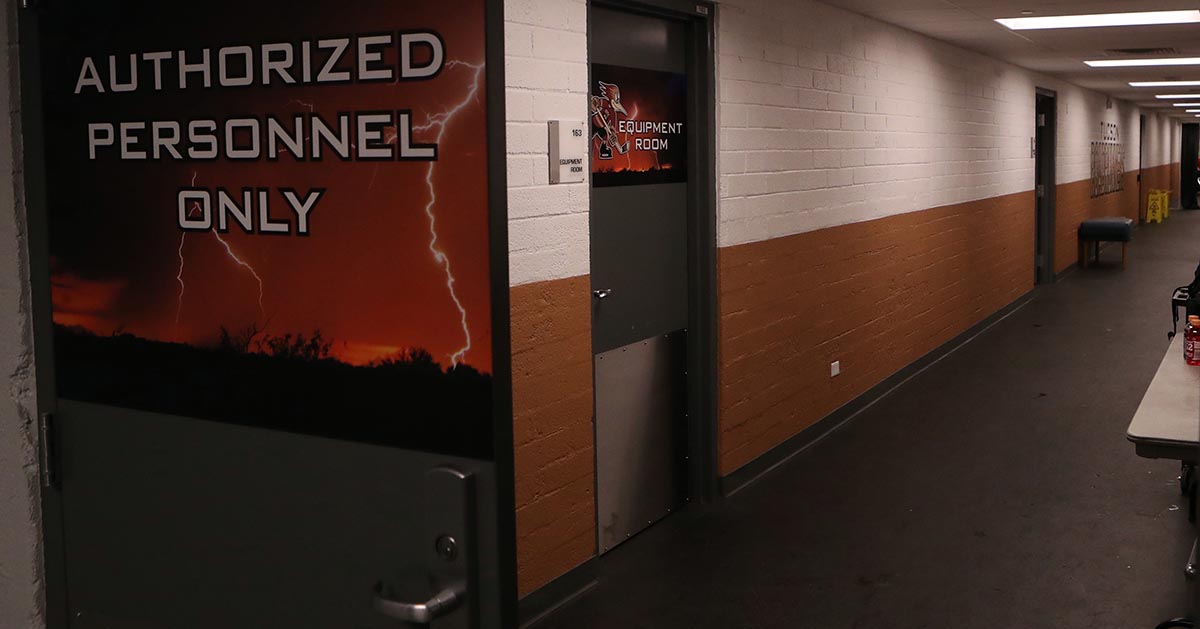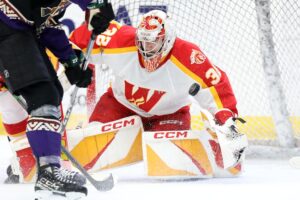written by Alexander Kinkopf | photos by Chris Hook | AHL On The Beat
6:00 AM
It’s early. Oh man, it’s early. Tucson Roadrunners assistant equipment manager Ryan Andrus has the keys; he’s got the start to another day in his hands.
Doors open, lights on; there’s a hockey game in about 13 hours.
First order of business is the team’s dressing room, where the players will begin to situate ahead of the day’s morning skate when they start to trickle into the facility in a couple of hours.
Andrus has practice jerseys and socks hung, ready, color-coded, and assigned per the day’s lineup by the time Eric Bechtol, the team’s head equipment manager, arrives.
It’s still quiet.
7:30 AM
Coffee’s on. That’s important.
Music. Bechtol’s got to have it. Straight to the computer he’ll go to select the first of many Pandora stations to be played during the long day ahead. Sometimes it’s slow jams, classic rock is always a favorite; it’s whatever sets the mood, really.
Then it’s to the steel. On any given morning prior to a pregame skate, Bechtol has roughly 15 pair of skates that need to be sharpened. He keeps a chart that specifies each player’s preference of when they like to get their blades touched up. It’s got to get done.
Little projects will get mixed in. For Bechtol, they always keep coming. Whether it’s repairing stitching in a glove, replacing a pad, or the tightening of a helmet screw, he’s checking it off the list by the time the players hit the ice for the morning skate.
9:45 AM
Andrus watches over the team’s bench as the players get their legs moving, skates hitting the ice ahead of another game in front of a home crowd at Tucson Arena. He’ll watch over their extra sticks and equipment needs to make sure he’s ready for maintenance if there are any on-ice malfunctions.
With a dependable set of eyes gazing over the players outside of the locker room facilities, Bechtol takes advantage of the opportunity to get some computer work done, whether he needs to catch up on equipment orders or solidify schedules with opposing teams.
He’ll make time for a peanut butter and jelly sandwich, too.
11:30 AM
All necessary preparations have been made for the opposing team’s morning skate, which is already underway.
Andrus and Bechtol take care of the visitors like guests in their own home. Water, laundry, tools, a friendly conversation – it’s all important.
Any additional tasks are noted and completed as the players head home for the afternoon. There are usually more skates to sharpen.
Time for lunch.
3:00 PM
Game jerseys and socks are put into place, hung in the dressing room for the evening’s affair.
The locker room is ready and open.
The presentation is spectacular, and detail is important.
5:00 PM
Players begin to arrive. A welcoming return.
A list adorns the wall outside of the equipment room for each name to place the extra sticks they’ll depend on having access to on the bench during the game. Andrus makes his way to the ice, stocking the team’s bench with every stick needed.
It’s time for last-minute requests. Whether it’s the need for a new stick, a hole to be patched up, a decal to be replaced, they need to know.
6:00 PM
Andrus, again, makes his way out to the rink, and multiple trips will be necessary. It’s time to stock the player benches and penalty boxes. Water bottles, Gatorade, tape, all of the essentials.
By this time, their three assistants have arrived. A few tasks delegated as the main event draws closer. They’ve got some help.
6:30 PM
All of the elements in their work now start to show. Warm-ups have begun. Game jerseys are on; adjustments to equipment are now put to the test by the players themselves.
For the first time all day, Bechtol’s music is drowned out by the tunes blaring from Tucson Arena’s speakers as fans file in to watch the commencement of yet another home game.
It’s no slow jams.
Andrus is on the bench to see that all preparations made during the day are taken care of and working in the flesh, to be close in case the players need anything – even if it’s just a quick conversation by the bench.
He’s there and they know it.
7:05 PM
We’ve got a game.
Bechtol takes over the bench, situated to the far right end of the players’ in-game domain. He’ll be watching over everything on the fly; noting broken sticks, dulled skate edges, fabric tears, missing mouth guards, everything.
He’s got a radio on, one with Andrus channeled on the other end for seamless communication.
Andrus is on call at all times.
With no direct access to the bench due to Tucson Arena’s configurations, Andrus must make his way through the stands, down the stairs, and to the back of the bench in case Bechtol is in need of any replacements on the run. Sticks, blades, dry gloves, those will all need to be lifted up and over the glass for Bechtol to retrieve.
Their intermission tasks are described to be similar of those as a NASCAR pit crew.
It’s the epitome of working on the fly.
A jersey tear? It needs to get sewn up within minutes. Dull blades? Straight to the sharpener.
9:30 PM
Game’s over.
Andrus is the first to meet the players as they file into the locker room, taking their sticks one-by-one before they decompress after another exhausting evening. He then makes his way back to the bench, where water bottles, tape, tools, and coaching accessories are wrangled up to be reorganized until the next game.
They’ll wait patiently for the coaching staff to finish addressing the players.
Once there’s clearance, it’s about getting game jerseys and socks rotating through the laundry as soon as possible. Extra sticks get put away.
Clean-up and restock. And maybe take a deep breath.
11:00 PM
The place is just about empty.
They might grab something to eat. They might not.
Andrus watches over the laundry room intently.
Bechtol stations himself back at his skate sharpener. He’s got a few pair to get out of the way to take some of the load off for the upcoming morning.
Yeah, it’s late. So what?
12:15 AM
They lock up. It’s time to go home.
“It’s a win for us if everything goes smooth and we’re not even noticed,” Bechtol says without hesitation.
“We’re trying to be under the radar,” Andrus noted as the two disperse to the parking lot. “We want to be behind the scenes as much as possible.”
No one really even knows they’re still here.
“When things go smoothly, and we go unnoticed, that means that we did our job, and that’s the best part,” Bechtol added, climbing into his car.
They drive away unnoticed.
And that’s the way they like it.

































